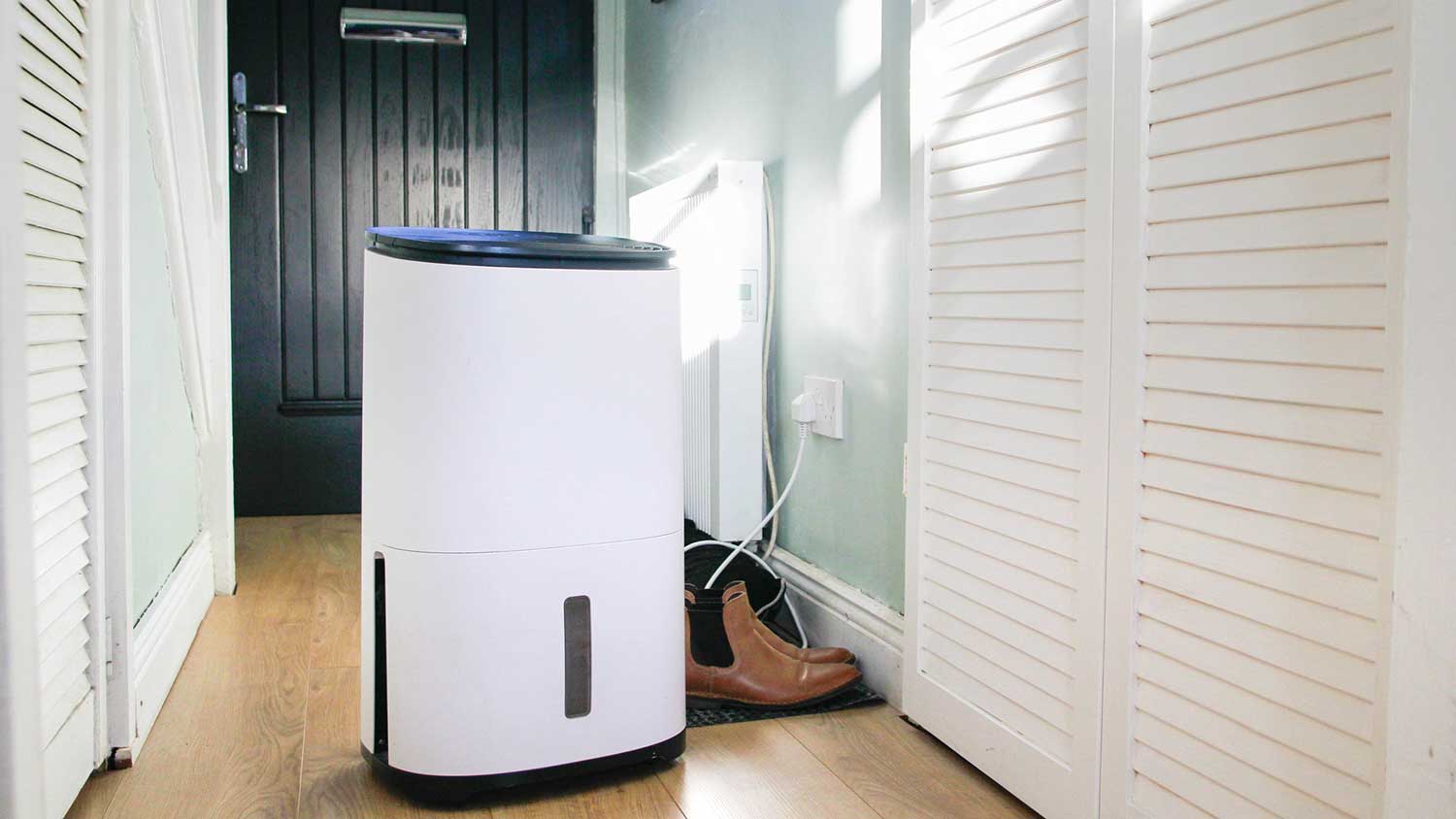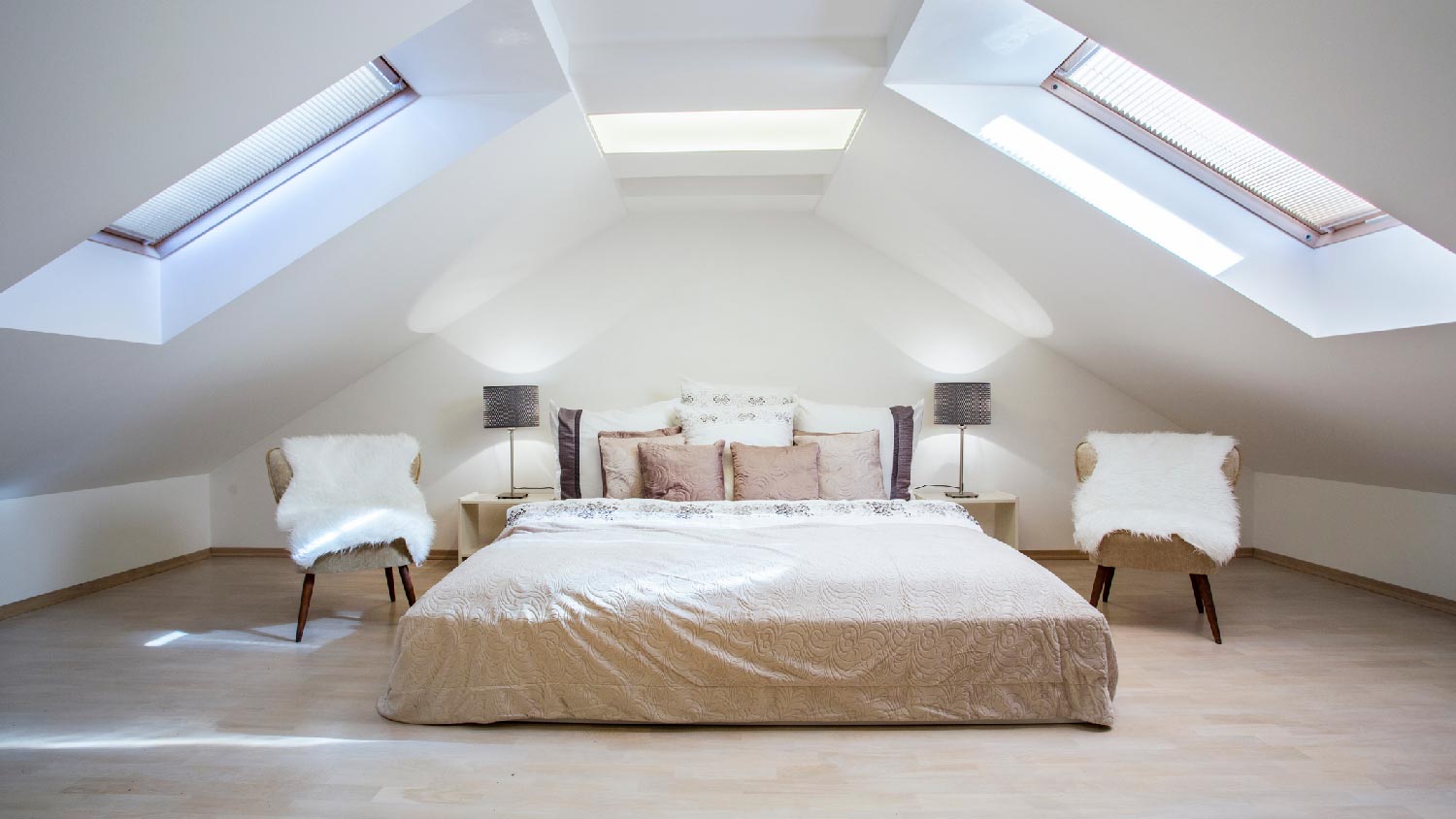How to Buy a Geothermal Heat Pump and Reap Instant Rewards
Don’t start digging just yet—know your options


Switching to a geothermal heat pump can lower your utility bills by up to 70%
It costs between $3,700 and $17,600 on average to install a geothermal heat pump
Geothermal systems last twice as long as conventional air-source units
Choose from horizontal loop, vertical loop, open loop, and pond/lake loop systems
Your pump type depends on your soil type, plot size, and water availability
If you’ve recently decided to buy a geothermal heat pump, then you’re probably already familiar with some of the ways that geothermal systems can benefit you year-round. But before you take the plunge on this major investment, you’ll want to know your options and choose the right geothermal system for your home. Once you do, sit back and watch the savings roll in.
What Is a Geothermal Heat Pump?
Geothermal heat pumps use a ground source to transfer heat to and from your home. Contrary to the name, your geothermal heat pump system can both heat and cool your house by either pumping heat from outside your home in and through the house or by pulling heat from your home and removing it into the ground or water outside.
Benefits of a Geothermal Pump
There are many benefits of geothermal heating systems. Here are just a few pros to making the switch to a geothermal heating and cooling system:
More energy efficient: According to the U.S. Department of Energy, heat pumps use anywhere from 25%–50% less energy than your traditional HVAC system
Less maintenance: Geothermal heat pumps require little maintenance compared to an air-source heat pump
Lowers humidity levels: Heat pumps maintain 50% indoor humidity levels
Long life span: Geothermal systems have twice the lifespan of a conventional air-source unit
Operates quietly: You’ll hardly hear your heat pump system since most of the mechanics take place underground
Save money: Utility bills can be up to 70% lower by switching to a geothermal heat pump
Types of Geothermal Heat Pumps
There are four types of geothermal heating systems: horizontal loops, vertical loops, open loops, and pond/lake loops.
Here’s a brief overview of each geothermal heat pump type:
Horizontal Loop Systems
Horizontal loop systems are the most affordable closed-loop heat pump systems. They also require the most land to install, as pipes are placed side-by-side into four- to six-foot trenches approximately two feet wide. Bigger homes need more piping to heat and thus require more land.
Smaller properties can still use a horizontal loop system and a “slinky” coil. This method takes up less space because the pipes overlap and coil, concentrating the heat transfer into a more condensed area.
Vertical Loop Systems
Vertical loop systems are the most expensive closed-loop heat pumps due to the depth and width of the excavation. Your installer will use a drill to create a series of holes around 20 feet away from one another and anywhere from 100 to 400 feet deep. Then, each hole is filled with pipes that all connect deep into the earth, followed by a single, horizontal piping system at the surface.
Open-Loop Systems
Also called well-water loop systems, an open-loop system is a good investment for homeowners who already have a well installed on their land. Unlike the other closed-loop options, an open-loop system only has one entry point and exit point.
In other words, the water that goes into the loop system does not come out of the same location. Instead, water discharges out of a separate, opposing tube where it’s released into the ground.
Pond/Lake Loop Systems
For lakefront homes or homes with access to a pond at least eight feet deep, another option is a pond or lake loop system. Though this system also uses water as the open-loop system does, it uses a closed-loop system like vertical and horizontal systems. Depending on how far away the water source is from your home, a pond or lake system can be cost-friendly or more costly than other options.
Installation includes directly inserting the loop system into the body of water. It will transfer heat from the water to your home through underground tubing attached to the indoor part of your heat system.
Determining Which Geothermal Heat Pump Is Right for Your Home
When choosing a geothermal heat pump, your local installer will need to know a few important factors to help you make the most educated decisions. Three major variables in choosing the right pump include:
1. The Type of Soil
From sand to clay to rock, soil and rock composition vary greatly depending on where you live. Some soil compositions affect how well heat can transfer underground, affecting the quality of a ground loop system. Your installer will need less piping for soil with better heat transfer properties. For areas with too much rock or limited soil, they might need to install more piping or choose a different type of heat pump installation.
2. Water Availability
In some cases, the pump can use ground and surface water to draw warm water into the system and transfer its heat to your home. The availability of an open-loop system, and whether you can benefit from water sources, depends on water quality and other regulations in your local area.
3. Landscaping and Size of Plot
Lastly, your landscape itself plays a role in your geothermal system’s design. New constructions can get away with a horizontal system much easier than older homes because there isn’t an existing landscape to disturb during construction. Horizontal pumps, for example, require more land to dig the trench and install the piping.
How Much Does a Geothermal Heat Pump Cost?
Geothermal heat pumps cost between $3,700 and $17,600 on average. Most homeowners will pay around $10,500 to install their geothermal heat pump system. While these upfront costs can seem high, you end up saving as much as 70% on your utility bills.
Also, geothermal systems installed in 2022 are eligible for receiving a 26% tax credit to curb costs on renewable energy sources. This credit decreases to 22% through 2023 and expires in 2024.
Installing a Geothermal Heat Pump System
Now that you have the 411 on geothermal heat pump systems, it’s time to get installing! But before you get your hard hat on and shovel out, remember: installing geothermal heat pump systems is best left for the pros.
Find a geothermal company near you to survey your land, conduct soil testing, assess any water sources, recommend the right products, and complete the installation to ensure that your new system runs correctly.





- Furnace Repair
- Air Conditioning Repair
- HVAC Repairs
- Furnace Installation
- Wood & Pellet Stove Repair
- Dehumidifier & Humidifier Repair
- Heat Pump Companies
- Swamp Cooler Repair
- Wood Stove Services
- HVAC Companies
- Commercial A/C Repair
- Geothermal Installation
- Air Conditioning Installation
- Boiler Repair
- 24 Hour Furnace Repair
- Geothermal Repair
- Heat Pump Repair
- Humidifier Installation
- Thermostat Repair
- Thermostat Installation
- Nest Installation
- Heating & Cooling
- Heating Repair
- Furnace Cleaning
- Furnace Tune-Up
- HVAC Technicians
- Subcontractors
- Furnace Maintenance
- Plumbing & Heating Companies
- Wood Stove Inspection
- Mini Split Installation
- Wall Heater Repair
- Duct Installers










